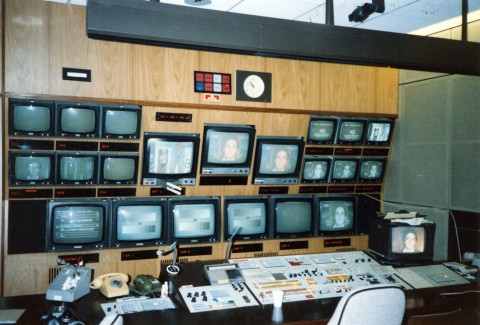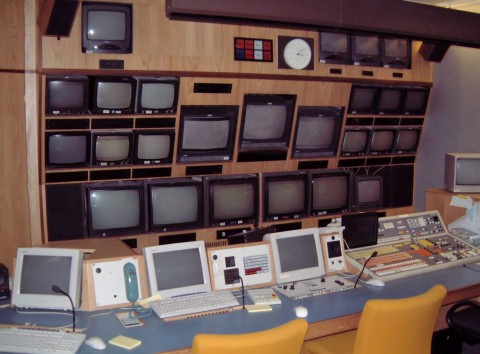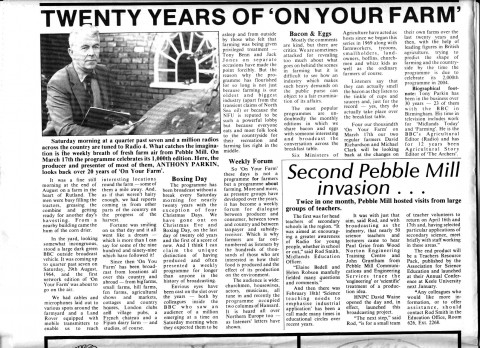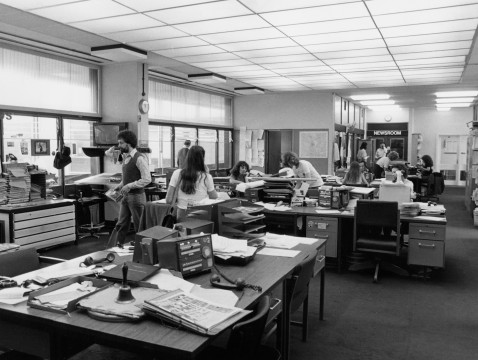Photo by John Doidge, no reproduction without permission.
I think that this photo is of the production gallery of Studio B circa late 1980s.
Studio B was the where Midlands Today was produced, but it was also used by many other programmes, e.g. Network East. The gallery was set up to take up to four studio cameras, and up to six outside sources.
The following comments were left on the Pebble Mill Facebook Page:
Jane Green: ‘I vision mixed that desk, did some ‘sound duties’ too, and directed Midlands Today from there. OMG – it looks ancient now. I do remember though – the Technical Manager who sat to the left of the picture, who always had the last say on whether an item could be broadcast or not due to its technical quality – and I had stories dropped because the pictures were not 100% ok. How times have changed!’
Richard Murrell: ‘Yes Jane, I have been imagining how some of the old TM’s would have reacted to Skype video or mobile telephone interviews!’
Peter Poole, added the following photo of Studio B in the 1990s – notice the advent of computers, and updated phones!
Rosalind Gower: ‘I remember this gallery pre computers. Directing Midlands Today was a but of a hairy experience as we had to do our own vision mixing as well!’
Lynn Cullimore: ‘I remember being in there , especially doing Midlands Today and lots of regional TV as the production assistant. Memories.’
Stuart Gandy: ‘This is after the 1985 major refurb, but before Basis arrived, I think around 1990. This was also before the era of computer control. The control panels above the vision mixer controlled the sources on the Probel Matrix which fed the monitors, viewfinders etc, Later on in the early 90s computers took over this function, and one of the first instances of this was the control system built by John Macavoy, for the graphics sources, using Windows 3.11. What a shame we can’t quite read the screen of the presfax monitor bottom left, this would show the exact date.’





